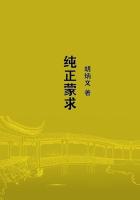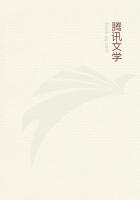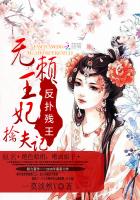For the present I went no farther in German literature, and I recurred to it in later years only for deeper and fuller knowledge of Heine; my Spanish was ignored, as all first loves are when one has reached the age of twenty-si My English reading was almost wholly in the Tauchnitz editions, for otherwise English books were not easily come at then and there. George Eliot's 'Romola' was then new, and I read it again and again with the sense of moral enlargement which the first fiction to conceive of the true nature of evil gave all of us who were young in that day. Tito Malema was not only a lesson, he was a revelation, and I trembled before him as in the presence of a warning and a message from the only veritable perdition. His life, in which so much that was good was mixed, with so much that was bad, lighted up the whole domain of egotism with its glare, and made one feel how near the best and the worst were to each other, and how they sometimes touched without absolute division in texture and color. The book was undoubtedly a favorite of mine, and I did not see then the artistic falterings in it which were afterwards evident to me.
There were not Romolas to read all the time, though, and I had to devolve upon inferior authors for my fiction the greater part of the time. Of course, I kept up with 'Our Mutual Friend,' which Dickens was then writing, and with 'Philip,' which was to be the last of Thackeray. I was not yet sufficiently instructed to appreciate Trollope, and I did not read him at all.
I got hold of Kingsley, and read 'Yeast,' and I think some other novels of his, with great relish, and without sensibility to his Charles Readeish lapses from his art into the material of his art. But of all the minor fiction that I read at this time none impressed me so much as three books which had then already had their vogue, and which I knew somewhat from reviews. They were Paul Ferroll, 'Why Paul Ferroll Killed His Wife,' and 'Day after Day.' The first two were, of course, related to each other, and they were all three full of unwholesome force. As to their aesthetic merit I will not say anything, for I have not looked at either of the books for thirty years. I fancy, however, that their strength was rather of the tetanic than the titanic sort. They made your sympathies go with the hero, who deliberately puts his wife to death for the lie she told to break off his marriage with the woman he had loved, and who then marries this tender and gentle girl, and lives in great happiness with her till her death. Murder in the first degree is flattered by his fate up to the point of letting him die peacefully in Boston after these dealings of his in England; and altogether his story could not be commended to people with a morbid taste for bloodshed.
Naturally enough the books were written by a perfectly good woman, the wife of an English clergyman, whose friends were greatly scandalized by them. As a sort of atonement she wrote 'Day after Day,' the story of a dismal and joyless orphan, who dies to the sound of angelic music, faint and farheard, filling the whole chamber. A carefuller study of the phenomenon reveals the fact that the seraphic strains are produced by the steam escaping from the hot-water bottles at the feet of the invalid.
As usual, I am not able fully to account for my liking of these books, and I am so far from wishing to justify it that I think I ought rather to excuse it. But since I was really greatly fascinated with them, and read them with an evergrowing fascination, the only honest thing to do is to own my subjection to them. It would be an interesting and important question for criticism to study, that question why certain books at a.
certain time greatly dominate our fancy, and others manifestly better have no influence with us. A curious proof of the subtlety of these Paul Ferroll books in the appeal they made to the imagination is the fact that I came to them fresh from 'Romolo,' and full of horror for myself in Tito; yet I sympathized throughout with Paul Ferroll, and was glad when he got away.















